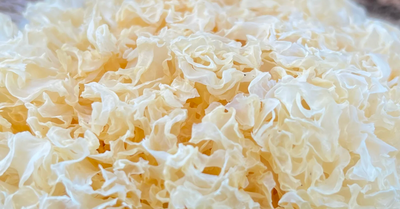
Menopause: What’s going on and how can we support it?

Menopause: What’s going on and how can we support it?
Menopause: What’s going on and how can we support it?
Menopause: what’s going on and how can we support it
Every biological female will at some point experience menopause. Physically and emotionally, it’s a rollercoaster, with ups and downs, twists and turns, unexpected side effects both good and bad. The one thing everyone can agree on; each experience is different. So, let’s understand what’s going on physically and how we can make the transition as positive as possible.
Understanding menopause
Menopause is a period of time in a woman’s life. During it, the ovaries slow the production of a hormone, oestrogen, which stops the production of eggs and the monthly menstrual period. A woman is considered in menopause after they haven’t experienced a period for 12 consecutive months, and it can last for several years after. The timing differs per person, but on average, it occurs between the ages of 45 and 55.
Throughout life, oestrogen is a key player in female health. It triggers puberty, controls the reproductive cycle, and later stimulates menopause. It also promotes skin health, helps dilate blood vessels, lifts and shifts mood and strengthens good intestinal function. It’s no wonder then that women notice its absence as it dips. From hot flushes and heart palpitations to low mood and sleep disturbances, the transition can leave many not feeling themselves.
A new stage of freedom – making menopause work for you
Change isn’t always a bad thing. Menopause has its negatives, but there are, thankfully, positives too. The end of reproduction brings with it a new sense of freedom – no more periods, premenstrual syndrome (PMS), hormonal headaches or risk of pregnancy. It can be a moment of liberation and empowerment. And to keep the good news coming, there are plenty of things women can do to make the journey smoother.
First and foremost, let’s talk diet. During menopause, bones can weaken but supplementing with foods rich in calcium and vitamin D counteracts this. For calcium, look for fortified drinks and dairy products such as milk and cheese. Green leafy vegetables like kale and spinach are great sources of calcium too. Top up Vitamin D with exposure to sunlight, as well as oily fish and eggs.
Then there are foods rich in phytoestrogens, a plant compound that mimics oestrogen. Load breakfast with flaxseeds, linseeds, or sesame seeds, and add more beans to daily meals. There are also menopause specific supplements that provide a range of vitamins and minerals to support the menopause transition in one easy tablet.
Here are a few of our favourite menopause supplements:
1. Now foods menopause support
2. Higher Nature Black Cohosh Menopause Relief
3. Time Health MenoPower Pre & Post Menopause Complex
4. DR.VEGAN MenoFriend Menopause Support
5. Higher Nature Menophase
Finally, we come to protein – getting enough will support muscle loss and manage weight as the body adapts. Make sure the shopping basket contains meat, fish, and eggs, as well as legumes, nuts, and dairy for those following a meat-free diet.
Diet is just one part of creating a positive menopause experience. Exercise and hydration are as important now as ever. Grab a bottle of water and get those trainers on. Walk, swim, hike, stretch – whatever gets you moving. Daily exercise improves energy, sleep, and stress levels, rippling good vibes throughout the body.
No matter your stage, don’t be afraid to talk about menopause. Sharing stories and advice brings us closer together, helping those going through it and supportive friends and family. Approaching menopause with health and kindness makes all the difference, giving both mind and body the best chance at a positive experience.













